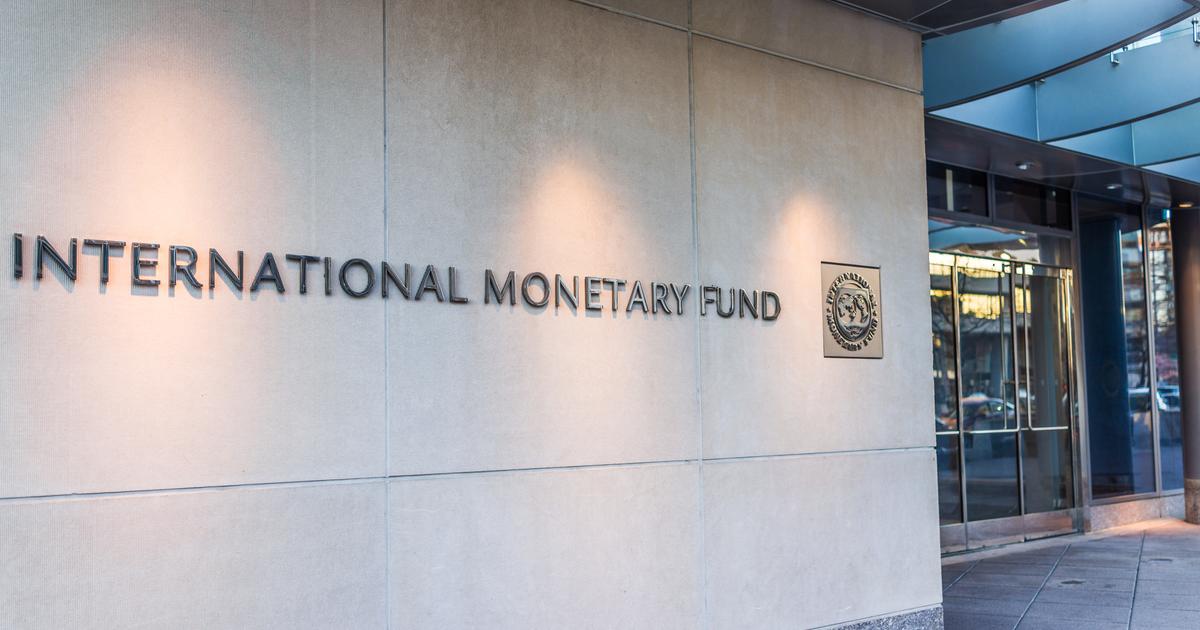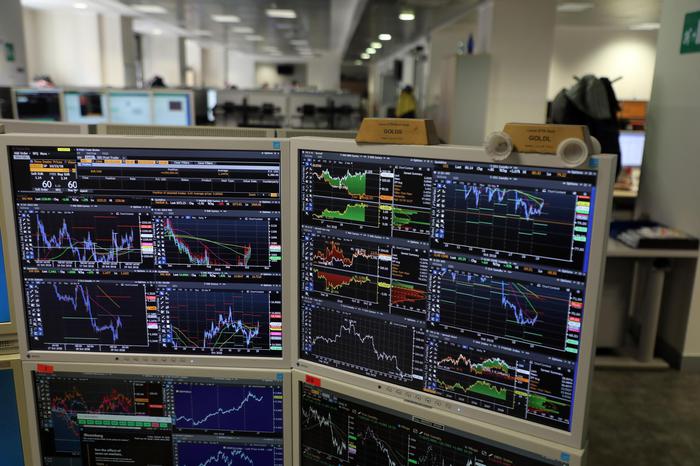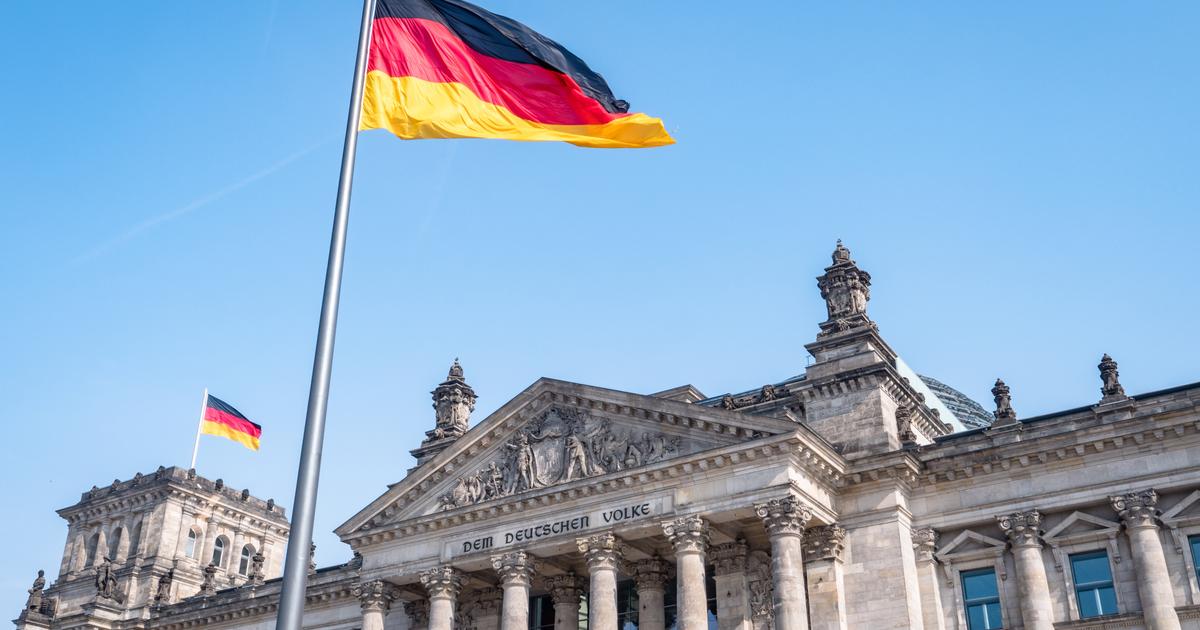The world economy is caught in a storm of shocks and uncertainties as it tries to recover from Covid-19, according to the IMF, which on Tuesday revised down its growth forecasts and warned of the many risks in seen.
“
The global economy, still reeling from the pandemic and the Russian invasion of Ukraine, faces an increasingly bleak and uncertain outlook
,” observes the chief economist of the International Monetary Fund, Pierre -Olivier Gourinchas, in a blog post.
"
Many risks
" mentioned by the IMF in its latest forecasts in April "
have started to materialize
", he warns, and "
the world could soon find itself on the brink of a global recession,
".
Consequently, global growth is now only expected at 3.2% in 2022, i.e. 0.4 points less than what was anticipated in April.
“
This reflects the slowdown in growth in the three largest economies in the world – the United States, China and the euro zone – with important consequences for the global outlook
”, observes Pierre-Olivier Gourinchas.
Read alsoEuro zone: the economy contracts in July, weighed down by inflation
The growth forecast for the United States for this year is lowered by 1.4 points compared to April, to 2.3%, due to "
weaker growth at the start of the year
", and the consequences of the high inflation.
China recorded “
a slowdown worse than expected
”, with 3.3% growth expected (-1.1 points) due to closures linked to Covid-19, and “
the worsening of the real estate crisis
”.
The growth forecast for the euro zone has been lowered by only 0.2 points, to 2.6%, weighed down by Germany, France and Spain, as a result, among other things, of the war in Ukraine.
Russia is doing better than expected
Russia, on the other hand, which is facing a wave of international sanctions in repercussions to this attack, should see its economy plunge a little less than expected in 2022, by 6%, and not by 8.5% as anticipated there is three months.
“
The Russian economy should have contracted less than expected in the second quarter, exports of crude oil and non-energy products holding up better than expected
”, details the institution in its report.
“
In addition, domestic demand is also showing some resilience thanks to the containment of the effect of sanctions on the domestic financial sector and a weaker than expected labor market weakening
,” the Fund added.
Western countries have, since the start of the Russian invasion of Ukraine on February 24, taken a salvo of sanctions against Russia intended to strangle it financially and economically.
On the other hand, their effects should be felt more than expected in 2023, the year for which the IMF anticipates a recession in the Russian economy of 3.5%, or 1.2 points less than its previous forecasts.
European economies hit hard
On the other hand, “
the effects of the war on the main European economies have been more negative than expected
”, specifies the IMF.
Economic growth forecasts for 2022 have indeed been lowered for Germany (-0.9 point to 1.2%), France (-0.6 point to 2.3%) and Spain (- 0.8 points at 4.0%).
These stronger consequences are due to “
rising energy prices as well as declining consumer confidence and slowing manufacturing activity resulting from continued supply chain disruptions and rising costs. raw materials
”, details the IMF.
War in Ukraine, inflation, strong economic slowdown in China: “
Several shocks have hit a world economy already weakened by the pandemic
”, notes the IMF.
The prices keep going up all over the world.
Inflation is expected to reach 8.3% this year worldwide (+0.9 points compared to April forecasts).
The war in Ukraine has caused food and energy prices to soar, weighing particularly heavily on the poorest populations.
Faced with this, central banks, including the Fed in the United States and the ECB in Europe, have begun to turn off the liquidity tap to restrict consumption and ease pressure on prices.
But this will not come without harm, warns the IMF: “
Stricter monetary policy will inevitably have economic costs, but any delay will only exacerbate them
”.
To protect the most vulnerable populations, "
targeted budgetary support (from governments) can help cushion the impact
", without however increasing public debt, because interest rates have increased, warns the institution. of Bretton Woods.
Many risks
For 2023, the global forecast is even more degraded, losing 0.7 points, to fall to 2.9%, due in particular to the consequences of the fight against inflation.
And the reality could turn out to be even worse, as the risks weighing on the economy are numerous.
The war in Ukraine could cause energy prices to rise further, and "
a complete shutdown of Russian gas exports to European economies in 2022 would greatly increase inflation around the world due to higher energy prices. high
”.
The fight against inflation could turn out to be “
more costly than expected
”, further underlines the IMF, noting that “
the risk of recession is particularly significant in 2023
”.
Read alsoThe EU will further lower its growth forecast and raise that of inflation
And the tightening of financial conditions, by driving up interest rates, could cause situations of over-indebtedness in emerging and developing countries.
Global growth, which had fallen by 3.1% in 2020 under the effect of Covid-19, rebounded by 6.1% in 2021.


/cloudfront-eu-central-1.images.arcpublishing.com/prisa/3FI7KHR4GI7ABUOQDZ3ENWASZQ.jpg)






